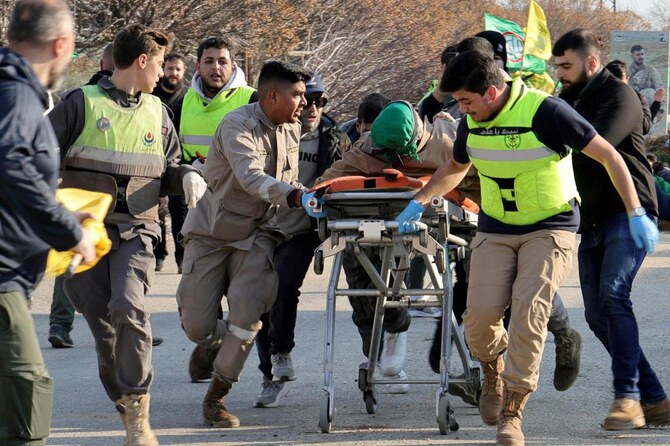
- ARAB NEWS
- 01 Aug 2025

BURJ AL-MULUK: Lebanon’s heath ministry said Israeli fire killed one person Monday and wounded seven others in the south, in a second day of violence as residents tried again to return to border villages.
The bloodshed, which one analyst said was unlikely to re-spark war, came hours after the extension of a deadline for Israeli forces to withdraw from south Lebanon under a November ceasefire deal.
The ministry said Israeli fire killed 24 returnees on Sunday.
“Israeli enemy attacks as citizens attempt to return to their towns that are still occupied have led… to one dead and seven wounded,” the health ministry said Monday in a statement.
It reported one dead and two wounded in the border town of Adaysseh, with others wounded in Bani Hayyan, including a child, as well as in Yarun and Hula.
Caretaker Prime Minister Najib Mikati said earlier Monday that Lebanon had agreed to an extension of the ceasefire deal between Hezbollah and Israel until February 18, after the Israeli military missed Sunday’s deadline to withdraw.
In south Lebanon, residents accompanied by the army were again trying to return to their villages, official media and AFP correspondents reported.
Hezbollah chief Naim Qassem is scheduled to deliver a televised address at 6:30 p.m. (1630 GMT).
In the village of Burj Al-Muluk, an AFP photographer saw dozens of men, women and children gathering in the morning behind a dirt barrier, some holding yellow Hezbollah flags, hoping to reach the border town of Kfar Kila, where the Israeli military is still deployed.
In the city of Bint Jbeil, an access point for many border villages, Hezbollah supporters were distributing sweets, water and images of former chief Hassan Nasrallah, who was killed in an Israeli strike in September.
Others handed out stickers celebrating the “victory from God” as women held pictures of slain Hezbollah fighters.
“They think they are scaring us with their bullets, but we lived under the bombing and bullets don’t scare us,” said Mona Bazzi in Bint Jbeil.
The official National News Agency (NNA) said that Lebanese “army reinforcements” had arrived near the border town of Mais Al-Jabal, where people had started to gather at “the entrance of the town” in preparation for entering alongside the military.
It said the Israeli army had “opened fire in the direction of the Lebanese army” near the town, without reporting casualties there.
“We waited in a long line for hours, but couldn’t enter,” said Mohammed Choukeir, 33, from Mais Al-Jabal, adding that Israeli troops “were opening fire from time to time on civilians gathered at the entrance of the town.”
In nearby Hula, where the health ministry reported two wounded, the NNA said residents entered “after the deployment of the army in several neighborhoods.”
Under the ceasefire deal that took effect on November 27, the Lebanese military was to deploy in the south alongside United Nations peacekeepers as the Israeli army withdrew over a 60-day period, which ended on Sunday.
Hezbollah was also to pull back its forces north of the Litani River — about 30 kilometers (20 miles) from the border.
AFP